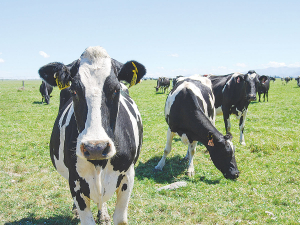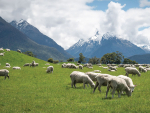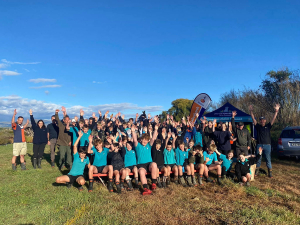Facial eczema (FE) is a disease which causes lowered production, skin irritation and peeling and sometimes death.
FE is caused by a toxin (sporidesmin) produced by the spores of the fungus Pithomyces chartarum growing on pasture. The fungus grows in the dead litter at the base of pasture in warm moist conditions.
Sporidesmin, when ingested by cattle, damages the liver and bile ducts.
The damaged liver cannot rid the body of wastes and a breakdown product of chlorophyll builds up in the blood causing sensitivity to sunlight, which in turn causes inflammation of the skin.
Signs to look for:
- a drop in milk production
- cows are restless, seeking shade and lick their udder
- exposed unpigmented or thin skin reddens, thickens and peels
Not all animals affected with FE show physical signs (i.e. clinical FE) although liver damage (i.e. subclinical FE) has occurred. It is estimated that for every clinical case there will be 10 cows with subclinical FE.
Milk production of animals with subclinical FE can be depressed by up to 50%.
Blood tests can be used to monitor the extent of subclinical FE.
Badly damaged liver tissue will not regenerate. Chronic wasting and/ or death may occur at the time of damage or months later when the animal is under stress (e.g. calving).
There is no cure for FE so prevention is the only way of protecting animals.
To be effective, preventative measures need to be in place before eczema spores are found.
Preventative measures include monitoring pasture spore count and either dosing animals with zinc or spraying pastures with a fungicide.
Breeding cows that are more tolerant to facial eczema is a solution to reduce the impact from facial eczema in the long term.
- Facial eczema tolerant genetics
- Monitor pasture spore count
- Zinc dosing
- Pasture spraying
- Pasture management
Cows showing clinical signs of facial eczema can recover if prompt action is taken.
- Dry off affected cows now, to reduce pressure on the liver
- Put zinc cream on white areas of the coat and the udder (if affected)
- Move affected stock into dense shade. Indoors is best (haybarn, calf-rearing and implement sheds) but make sure there is a good water supply and supplementary feed available for cows
- Feed cows at night, so they are not exposed to sunlight and stop hard grazing so cows do not graze down into dead matter where the spores that cause FE live
- Feeding maize and/or silage can help, but cows will still tend to graze if they are kept on pasture
- Make sure the diet is balanced, with good levels of energy and protein.
Practical indicators of recovery include liveweight gain and improvement in body condition score (BCS).
Source: DairyNZ



















